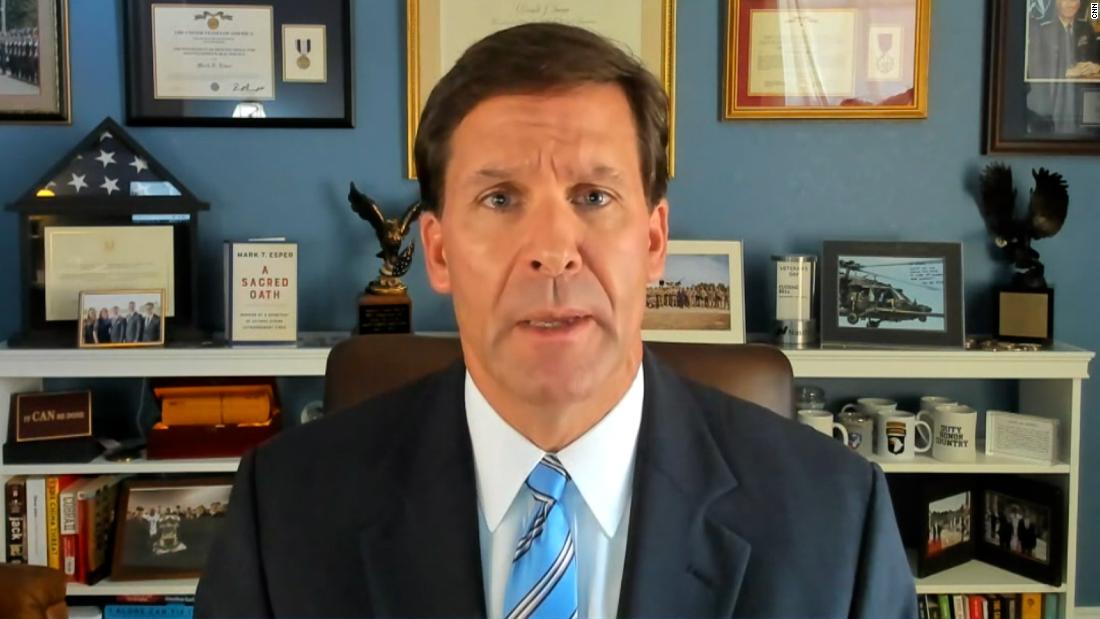Does a Crackdown on Right-Wing Domestic Terror Threaten Everyone’s Civil Liberties?
A forthcoming Loyola of Los Angeles Law Review paper warns that calls to strengthen the federal government’s anti-terrorist statutes to go after white supremacists and other right-wing extremists could backfire by making any protest group a target.

Following the Jan. 6 attack on the U.S. Capitol, elected officials and terrorism experts revived previous calls for Congress to pass a domestic terrorism statute that would empower the federal government to investigate and pursue white supremacists and other domestic terrorists with the same tools it uses to go after international terrorism.
But a forthcoming Loyola of Los Angeles Law Review paper warns that strengthening the federal government’s anti-terrorist statutes to encompass US individuals could represent a threat to the civil liberties of all Americans.
“Given the federal government’s history of surveilling, harassing, and prosecuting dissident groups, the current political moment is ripe for civil liberties infringements,” argue the authors of the paper, Harvard Law School students, Rachael Hannah and Eric Halliday.
“Diffuse protest movements across the political spectrum risk being labeled and prosecuted as domestic terrorists (and) the federal government’s discretionary use of its authorities against ill-defined political groups creates the potential for it to classify political speech and acts of protest as domestic terrorism.”
The paper says previous efforts to curb domestic unrest show that there is already “too much latitude” in defining what constitutes terrorism at home, and too little congressional oversight.
Legal Landscape of Domestic Terrorism
Domestic terrorism, as a concept, lacks a universally accepted definition, the paper argues.
The federal government generally notes that domestic terrorism “involve[s] acts dangerous to human life that are a violation of the criminal laws of the United States or of any State” while also appearing or intending to intimidate, influence, coerce, or affect the conduct of a government.
Legally, there is no criminal punishment associated with domestic terrorism, meaning there is no single federal crime of domestic terrorism. Because of this, areas of ambiguity emerge: a crime like illegally carrying a firearm across state lines with the intent to commit a racially motivated shooting by definition doesn’t fall under domestic terrorism, but many in the public could disagree, the authors assert.
The federal government’s definition and subsequent legal scope is much broader than the FBI, which defines domestic terrorism as “violent criminal acts committed by individuals and/or groups to further ideological goals stemming from domestic influences.”
Because of this addition of violence in the definition, it allows the FBI to investigate alternative lower-level criminal conduct — like property offenses — as acts of domestic terrorism, the paper says.
Power Paradox
While the federal government utilizes a broad definition for domestic terrorism, Hannah and Halliday maintain that sometimes, “domestic terrorism falls unprosecuted, under-prosecuted, or not investigated at all” because of their limited ability to pursue pre-attack behavior, like stockpiling weapons in preparation for a potential mass shooting.
The paper cites the case of Christopher Hasson, a former U.S. Coast Guard lieutenant and a self-described white nationalist, who was accused of plotting assassinations of politicians and media figures in 2019.
Hasson documented his plans for a mass murder spree, while also stockpiling weapons and ammunition — but when it came time for the federal government to charge him, they fell back on weapons charges. He was sentenced to 13 years in prison on federal gun and drug offenses, rather than terrorism.
The authors argue that an attempt to bring terrorism charges would have been an example of overreach, and would have had implications far beyond the specific case.
“The federal government can use anything up to and including the full weight of its powers to pursue anyone who could be remotely involved with political ideologies that oppose the government if there is even a suggestion of potential violence,” the paper said.
In fact, the authors note, the federal government has “a host of warrantless digital and physical investigatory tools at its disposal” some available at any time, “even without the predicate of an official inquiry” that can remove the threat posed by domestic terrorists.
The FBI, for example, needs no particular “factual prediction” to begin investigating someone once an inquiry has been opened. This, they argue, would be giving federal law enforcement authorities too much power.
At the assessment stage following an inquiry, “the FBI can rely on factually unsubstantiated allegations and suspicions to fuel their domestic terrorism investigation,” the authors detail.
In the two decades since the 9/11 terrorist attacks, outside critics and government officials have charged the FBI with overstepping its investigative authority domestically, especially regarding domestic advocacy groups that oppose policies of the federal government.
For example, the authors note that in a 2010 report by the DOJ’s Inspector General, the FBI opened investigations against progressive advocacy groups, including PETA, Greenpeace, and the Catholic worker all for domestic terrorism because of their outspokenness against the government’s behavior and legislation.
More recently, cases stemming from the summer 2020 Black Lives Matter (BLM) protests and the January 6 Capitol attack are being coordinated through the Department of Justice as matters of national significance―but as individual criminal cases.
As of December 22, 2020, seven defendants in five separate cases from the BLM protests and counter-protests during the summer of 2020 have been charged with violations of a statute regarding damaging federal buildings.
Proposals and Recommendations
The authors note that in some circumstances, agencies will err on the side of caution, fearful of using the full weight of their powers if it leads to civil liberty violations against accused domestic terrorists which can cost them the investigation.
Instead of further digging, some key pieces of evidence will fall through the cracks, the paper acknowledges.
“The most recent example of this dynamic is the reported refusal of Main Justice and FBI officials to aggressively investigate individuals who had potential ties to participants in the January 6 Capitol riot, including people who had paid for rioters’ travel and other members of groups to which rioters belonged,” the authors explain.
“The officials were apparently concerned that such an approach would violate the targets’ First Amendment rights and rebuffed the urging of line prosecutors to expand the existing inquiry.”
The researchers also note that a proposal for a statute that would mandate increased coordination between federal agencies on domestic terrorism matters, while also requiring reporting to relevant congressional committees are “sensible places to start.”
Overall, the authors note that in certain circumstances, the federal government can use its expansive reach to pursue anyone remotely involved with a political ideology opposing the government.
This, they argue, has to change.
“The significant discretionary powers of the federal government to define and pursue domestic terrorism as it sees fit––based on its assessment of security threats and, sometimes, political pressure from elected officials––creates a significant risk for the delegitimization of political speech and conduct,” Hanna and Halliday conclude.
“In light of this reality, and in the midst of a call for the federal government to pursue domestic terrorism more vigorously, serious consideration needs to be given limiting the Executive branch’s expansive discretion to define, identify, and pursue domestic terrorists.”
Rachael Hanna is a student at Harvard Law School. Prior to law school, Rachael spent two years working at Mintz Levin, where she focused on white collar and anti-money laundering matters. She holds an A.B. in Government from Harvard College.
Eric Halliday is a student at Harvard Law School. Before law school, Eric worked for two years at Mintz Levin, where he focused on white collar, anti-money laundering, and pro bono domestic violence matters. He graduated from Tufts University with a B.A. in Political Science and Italian Studies.
The full paper can be accessed here.
Andrea Cipriano is a TCR staff writer.

 Landwebs
Landwebs 





















